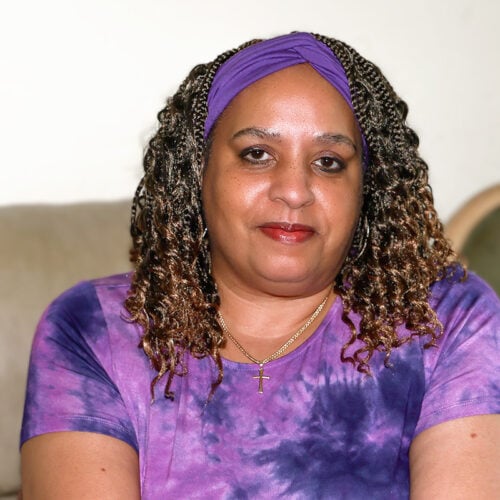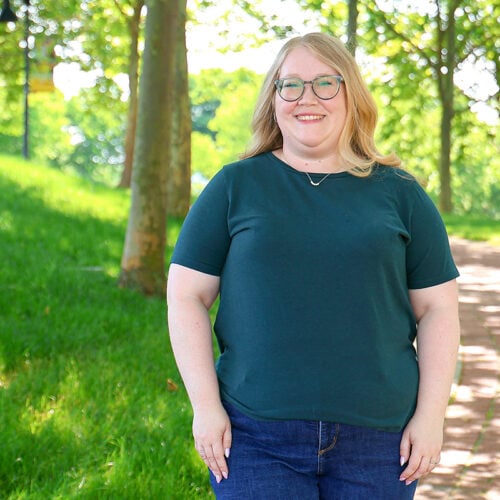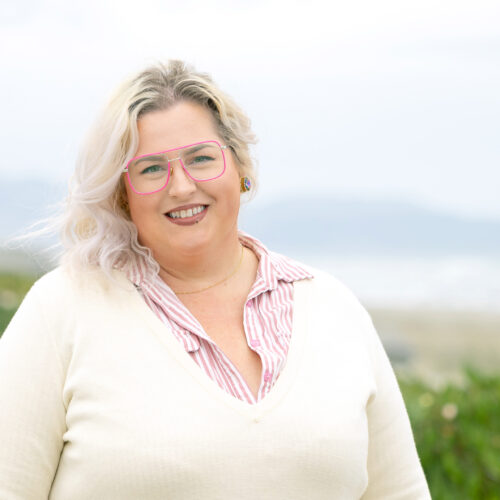Meet Charlotte
Charlotte has always led a busy life, filling her days caring for her family, including her 12 grandchildren. When her health began deteriorating and she experienced transient ischemic attacks (TIAs), she knew she faced an increased risk of heart attack or stroke.
One night, while preparing for an upcoming move, she suddenly began feeling ill.
“My chest just started hurting,” she recalls. “I cooked dinner, went and sat down on the bed, and told my husband to hand me my medicine. The next thing I know, I just fell over.”
She awoke to find her bedroom filled with paramedics, who confirmed she had experienced a stroke.
An introduction to Kandu
During her hospital stay, Charlotte was introduced to Kandu. “Two of the sweetest ladies came in and talked to me,” she remembers. They explained how Kandu could help her navigate her recovery.
Before her stroke, Charlotte was very active. Afterward, she experienced weakness on her right side, memory problems, and difficulty speaking– which made doing daily tasks difficult. She realized quickly that her recovery wouldn’t end when she left the hospital. Charlotte felt Kandu’s support might help her navigate her recovery.
When Charlotte met her Navigator, Puja, she felt that Kandu could be exactly what she needed. “The nicest angel came into my life and helped me tremendously, she said.
“The nicest angel came into my life and helped me tremendously”
Navigating stroke recovery
Over the course of several months, Puja worked one-on-one with Charlotte to determine where she needed the most help. “She did everything that she possibly could do to help me in my recovery,” Charlotte says. Like many other stroke survivors, Charlotte was juggling a lot of appointments once she returned home from the hospital.
She was unable to drive because of her stroke, and she was struggling to get to all of those appointments. Her friends and family wanted to help, but their work schedules and other commitments made it difficult for them to help consistently.
“I lost one of my doctors due to me not having transportation to get back and forth to them,” she explained.
Together, Puja and Charlotte determined that one of Charlotte’s biggest needs was reliable transportation. So Puja signed Charlotte up for an affordable local transit service that could take her to all of her appointments.
Having reliable transportation transformed Charlotte’s recovery, “It was like I just won a million dollars,” she says.
Preventing a future stroke
With Puja’s support, Charlotte is also focusing on preventing a second stroke. She uses skills she learned through Kandu, particularly stress management. “When you feel stressed, stop. Stop what you’re doing,” she reflects. “Sit down, meditate, do whatever you’ve got to do—whatever it takes to relieve your stress.”
Charlotte is also taking online exercise classes, which Puja suggested. “Some are sitting down, and some are standing up, and you get to pick your time when you want to do it,” she says.
Many survivors, like Charlotte, don’t know other stroke survivors personally, and stroke recovery can be isolating. Kandu’s support groups connected her with other stroke survivors. “It’s important to realize you’re not alone,” she shared. “Not only do they tell you how to cope with your stroke issues, but to cope with the things in life.”
Charlotte finds meaning in sharing her experience with others. “I still jump in on the meetings to still tell my story on how I recovered from my stroke,” she says.
Her biggest advice to fellow survivors reflects her experience, “Take it one day at a time, because recovery is not overnight. It’s a long life process.”



